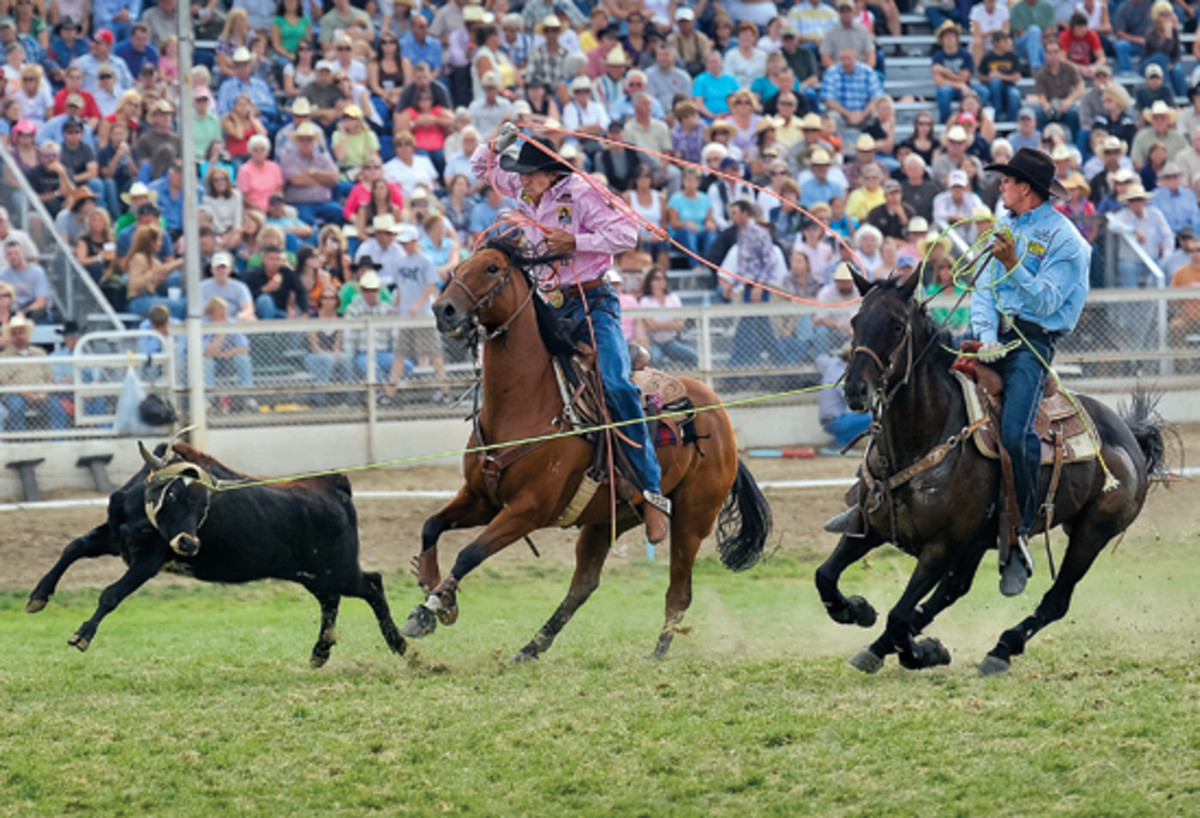
What is Vision?
I love basketball, so I’ll use basketball as a parallel here. If you’ve got a kid who is just ate up with basketball, and he wants to get to the NBA, you’ve got to ask yourself how do those kids make it to the NBA, and why can’t mine? It’s about developing a plan and a strategy early on that will help your kid be as successful as possible. My son, Joel, grew up in rodeo’s version of an NBA family. Tuf Cooper, with Roy as his dad, had an NBA family. It’s about building the foundation with some icons to look up to and the proper coaching, increasing your kid’s roping IQ and—throughout the process—maintaining a positive relationship with your individual child.
Foundation
Parents, right off the bat, need to give kids the right coaching. In team roping, the pros are more accessible than in most other sports. Hire a pro to work with your kid, even if it’s just at a school, to make sure he or she has the right horses, the right mental approach, the right fundamentals and the right kids around him or her. Paul Eaves’ family sent him to live with me, and Clay Tryan’s dad, Dennis, sent him to me. If you want to be a pro, you’ve got to think like a pro early on and be exposed to the way they practice and their mental approach to every situation.
Work Ethic: A Fundamental at the Foundation of Every Great Roper with Clay O’Brien Cooper
Looking up
Right in line with this is that parents and kids should work together to develop a team roping “business plan.” By that, I mean they should watch the pros and pick the best attributes from each guy. Not every one of the pros is the best at everything, but your kid can work to score like Trevor Brazile, ride his horses like Clay Tryan and reach like Kaleb Driggers. You can take Jade Corkill’s horsemanship and position through the corner, Clay O’Brien Cooper’s mental approach and Rich Skelton’s swing. I’m just giving examples, but so much comes down to watching the best in the game and being open-minded enough to be a true student of the game.
Roping IQ
Proper coaching and great idols go into developing a roping IQ, but there’s more to it, too. Say that 1,000 is the highest roping IQ a team roper could have. Say Jake Barnes is a 950 on the heading side, and Rich Skelton is 957 heeling. We are all around each other all the time—eating, sleeping, breathing team roping. Iron sharpens iron, so our IQs are building constantly, learning from one another. Our mindsets are correct where team roping is concerned, and we’re around each other and developing. Kids need to be studying the way the pros think, rather than any coffee-shop ropers who have theories on the game rather than actual experience. They need to be studying the videos of Jake and Clay, reading all the articles on team roping they can, watching Total Team Roping and Patrick Smith’s videos. It’s about developing your roping IQ, and isolating your kid and not giving him or her these materials that are available won’t improve his or her game. Trevor Brazile probably has the highest roping IQ of anybody—the way he takes care of his horses, his business, his practice—I’d be talking about him to my kids every chance I got.
Learn from Trevor Brazile here.
Relationship
I can’t say enough about how important having a great relationship is with your kid. If you’re not open-minded and you don’t realize that each kid is different, you’re going to struggle and so is your kid. You’ve got to be Dad, coach, friend and, sometimes, partner. That’s hard to juggle. When I see parents being so hard on their kids, they’re holding them back. Jake Barnes, Clay O’Brien Cooper and myself, when we were kids, we wanted it 100%. We didn’t have to go practice. We wanted to. It’s got to be that way for the kids, too. I let Joel and Tyler start reaching at 10 years old. I wasn’t letting them duck their horses, but I’d let them reach so they knew if they backed into the box in a short round and they had to reach, they could have the confidence to do it. They need to be able to back in there and take a shot and not be afraid of missing. That means they need your support, because—just like in basketball—you don’t make every three-pointer you take. But I want my kids to have the confidence to go for it. And eventually, the consistency will come.











